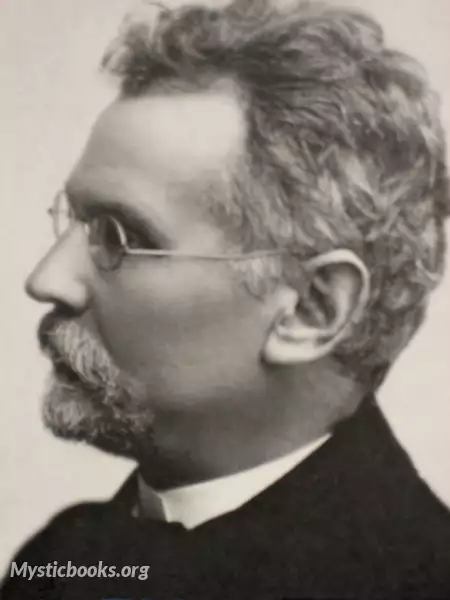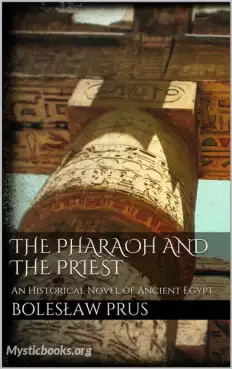
Timeline
Title
Country/Nationality
Boleslaw Prus
Aleksander Głowacki better known by his pen name Bolesław Prus was a Polish novelist, a leading figure in the history of Polish literature and philosophy, as well as a distinctive voice in world literature.
As a 15-year-old, Aleksander Głowacki joined the Polish 1863 Uprising against Imperial Russia. Shortly after his 16th birthday, he suffered severe battle injuries. Five months later, he was imprisoned for his part in the Uprising. These early experiences may have precipitated the panic disorder and agoraphobia that dogged him through life, and shaped his opposition to attempting to regain Poland's independence by force of arms.
In 1872, at the age of 25, in Warsaw, he settled into a 40-year journalistic career that highlighted science, technology, education, and economic and cultural development. These societal enterprises were essential to the endurance of a people who had in the 18th century been partitioned out of political existence by Russia, Prussia and Austria. Głowacki took his pen name "Prus" from the appellation of his family's coat-of-arms.
Aleksander Głowacki was born 20 August 1847 in Hrubieszów, now in southeastern Poland, very near the present-day border with Ukraine. The town was then in the Russian-controlled sector of partitioned Poland, known as the "Congress Kingdom". Aleksander was the younger son of Antoni Głowacki, an estate steward at the village of Żabcze, in Hrubieszów County, and Apolonia Głowacka (née Trembińska).
In 1850, when the future Bolesław Prus was three years old, his mother died; the child was placed in the care of his maternal grandmother, Marcjanna Trembińska of Puławy, and, four years later, in the care of his aunt, Domicela Olszewska of Lublin. In 1856 Prus was orphaned by his father's death and, aged 9, began attending a Lublin primary school whose principal, Józef Skłodowski, grandfather of the future double Nobel laureate Maria Skłodowska-Curie, administered canings (a customary mode of disciplining) to wayward pupils, including the spirited Aleksander.
On 19 May 1912, in his Warsaw apartment at 12 Wolf Street (ulica Wilcza 12), near Triple Cross Square, his forty-year journalistic and literary career came to an end when the 64-year-old author died.
The beloved agoraphobic writer was mourned by the nation that he had striven, as soldier, thinker, and writer, to rescue from oblivion. Thousands attended his 22 May 1912 funeral service at St. Alexander's Church on nearby Triple Cross Square (Plac Trzech Krzyży) and his interment at Powązki Cemetery.
Prus's tomb was designed by his nephew, the noted sculptor Stanisław Jackowski. On three sides it bears, respectively, the novelist's name, Aleksander Głowacki, his years of birth and death, and his pen name, Bolesław Prus. The epitaph on the fourth side, “Serce Serc” (“Heart of Hearts”), was deliberately borrowed from the Latin “Cor Cordium” on the grave of the English Romantic poet Percy Bysshe Shelley in Rome's Protestant Cemetery. Below the epitaph stands the figure of a little girl embracing the tomb a figure emblematic of Prus's well-known empathy and affection for children.
Prus's widow, Oktawia Głowacka, survived him by twenty-four years, dying on 25 October 1936.
In 1902 the editor of the Warsaw Kurier Codzienny (Daily Courier) had opined that, if Prus’s writings had been well known abroad, he should have received one of the recently created Nobel Prizes.
Books by Boleslaw Prus

The Pharaoh and the Priest
The Pharaoh and the Priest (Polish: Faraon) is the fourth and last major novel by the Polish writer Bolesław Prus. It was the sole historical novel by an author who had earlier disapproved of historical novels on the ground that they inevitably disto...

Lalka (tom 1)
Set against the backdrop of 19th-century Warsaw, this classic novel tells the story of Stanisław Wokulski, a wealthy merchant who falls in love with Izabela Łęcka, a beautiful but impoverished aristocrat. As Wokulski tries to win Izabela's heart, he...

Faraon (tom 1)
''Faraon'' is a historical novel set in ancient Egypt that explores themes of power, ambition, and social inequality. It follows the story of Ramzes, a young prince who ascends to the throne and struggles to navigate the complex political landscape o...